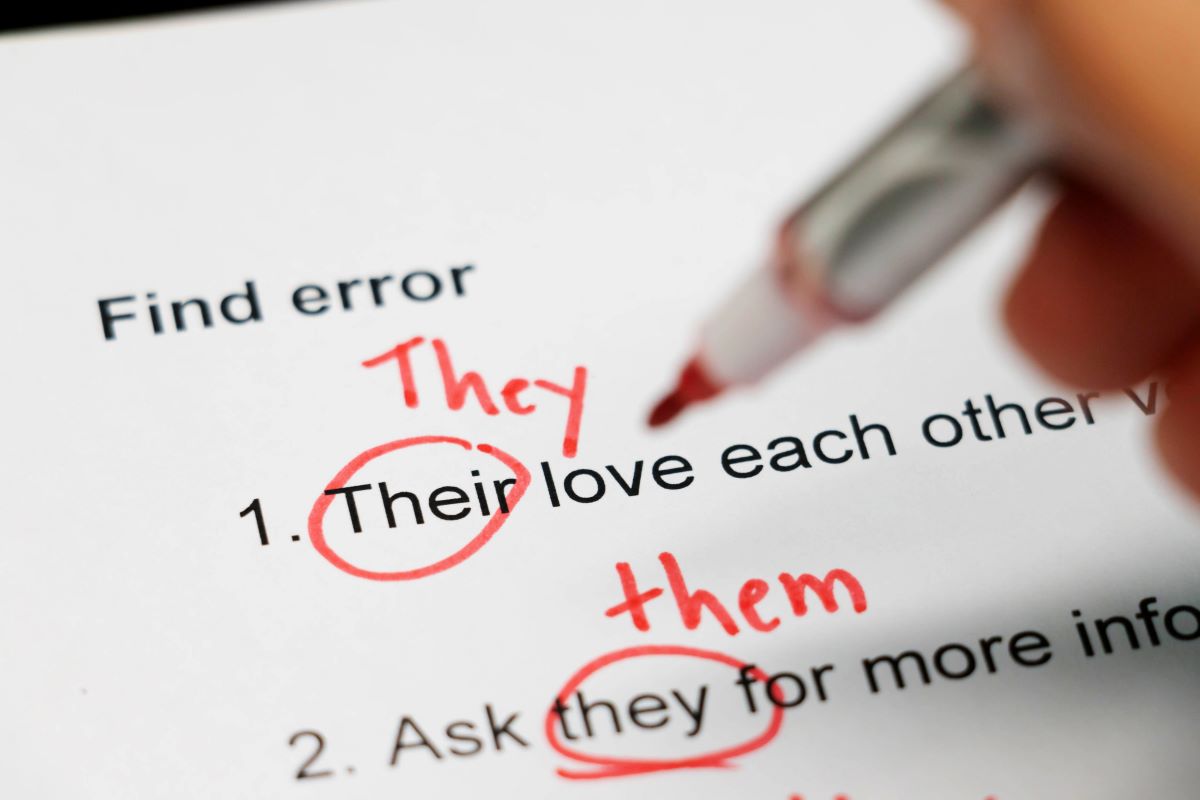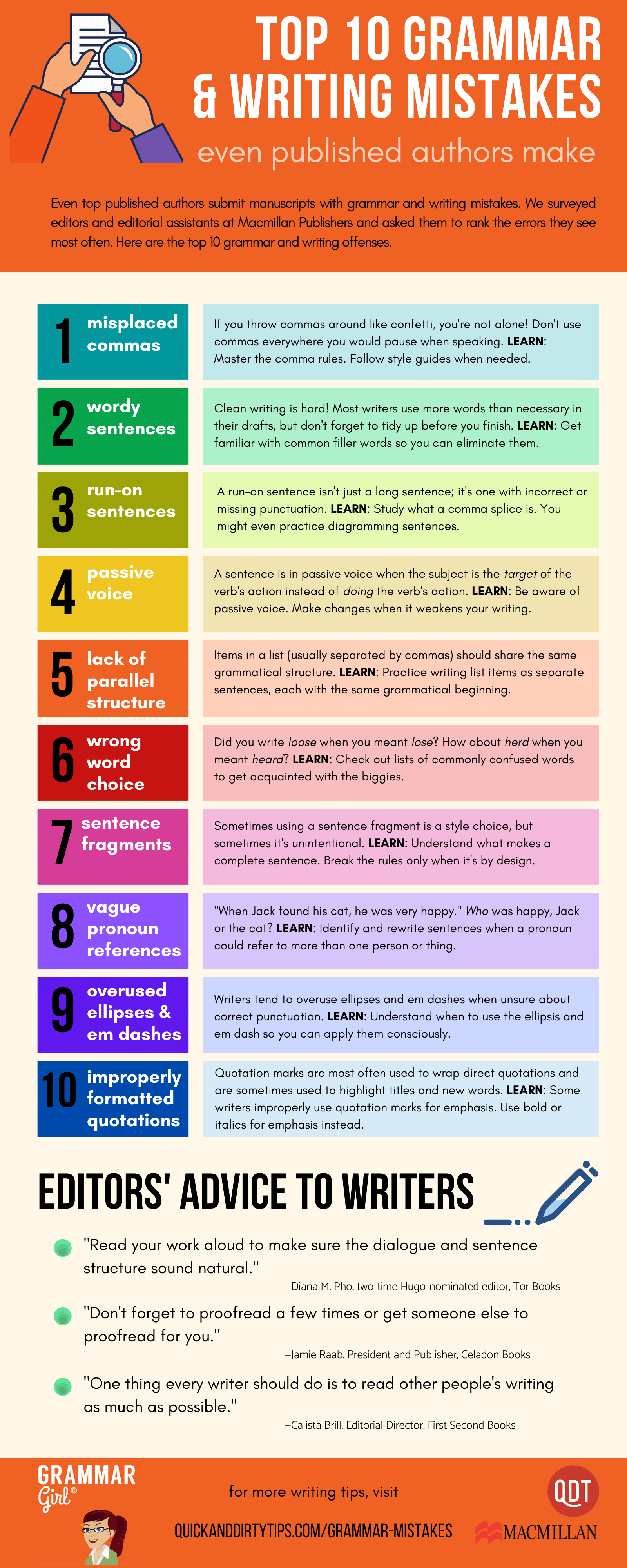Infographic: The most pervasive grammar gaffes
Editors share the top blunders and snafus they encounter every day.

Many writers are meticulous angels who diligently proofread and polish their copy before submitting a piece.
Others, bless their hearts, seem to delight in dropping 1,500 words’ worth of unedited slop into the nearest editor’s lap.
“It’s they’re problem now!”
As you might imagine, editing can be a bit like “Groundhog Day.” You encounter the same mistakes, over and over, day after day. Its fine. Really, it’s not a big deal in the grand scheme of things.
Of course, if you want to reap a whirlwind of disastrous karma and pointy objects, by all means, carry on with youre careless ways.
For those who aspire to be one of those saintly scribblers who will surely inherit the earth, Grammar Girl has an infographic for you. The grammar and style expert surveyed a group of eagle-eyed Macmillan Publishers editors to identify the most common blunders they encounter—even from professional writers. The top offenders include:
1. Misplaced commas
Commas are confounding little pieces of… punctuation. Microsoft Word’s editor won’t help you here, and neither will your gut. Grammar Girl writes, “Commas are one of the most commonly used punctuation marks, and there are a baffling number of ways to use them.” So, it pays to do your homework.
Consider this a humble suggestion to start by reading Rob Reinalda’s “comma chameleon” opus on the topic.
2. Wordy and run-on sentences
Did you read the article that opened with a 40-word lede? Nope, I didn’t read that crap either.
Grammar Girl more tactfully advises getting straight to the point in your copy and to avoid “simple redundancies.” GG offers these examples you can always prune:
Abbreviations with repeated words
ATM machine
HIV virus
please RSVP
Modified absolutes
very unique
completely dead
exact same
Simply redundant or wordy phrases
close proximity (if you are in the proximity, you are close)
fiction novel (all novels are fiction)
free gift (all gifts should be free)
future plans (if you’re making plans, unless you’re a time traveler, they are for the future)
my personal opinion (all opinions are personal unless otherwise specified)
old adage (all adages are old)
past experience (all experience is in the past)
twelve noon (noon is always at twelve)
“One-year anniversary” is a common blunder, too.
3. Passive voice
Passive writing is wimpy and annoying to read. Grammar Girl explains, “A sentence is in the passive voice when the subject is the target of the verb’s action instead of doing the verb’s action.” She adds: “Often, you can add ‘by someone’ to the end of a passive voice sentence: ‘Mistakes were made by writers.’”
You can say that again. But try to do so in a livelier manner, please.
4. Wrong word choice
Here’s another area in which spellcheck will not save you. Grammar Girl mentions troublesome siblings such as “affect” or “effect”? “Home in” or “hone in”? “Further” or “farther”?
Other nominations for this category: comprise, only, literally, ironic, fewer. A special nod to the always terrible “impactful.”
5. Vague pronoun references
Grammar Girl explains:
“Sometimes a pronoun could refer to multiple people or things. ‘When Jack found his cat, he was very happy.’ Who was happy? Jack or the cat? We can’t tell. Experts call that an ambiguous antecedent, but you can just call it something you should avoid.”
What else would you add, Ragan readers? Which errors drive your bananas?
As you think about grammar goofs that grind your gears, you can read the rest of Grammar Girl’s helpful infographic here.









“Most Ubiquitous” — Really? Ubiquitous means everywhere. Would you say “Most Everywhere?” Everywhere suffices. So does ubiquitous.
Thanks for the comment, William. I kinda disagree here, but the last thing I want to do is cause a reader to stumble! I’ll make the headline clearer.
Great article. I am one of those weird editors who recoils in horror when I see a typo in the headline of a newspaper article. Yikes! Two of my fave wrong word choices:
“Principle” or “Principal” and “Complement” or “Compliment”
###
He’s got. They’ve got. We’ve got.
UUUUUUGH.